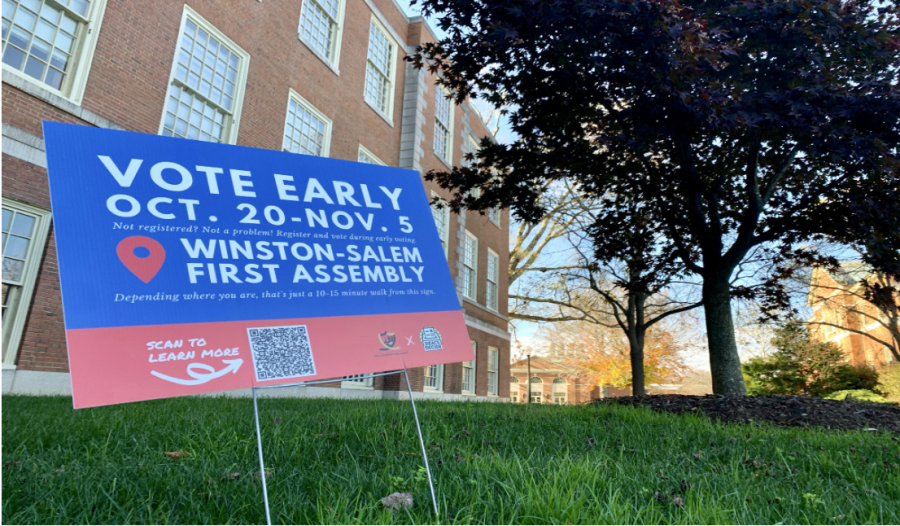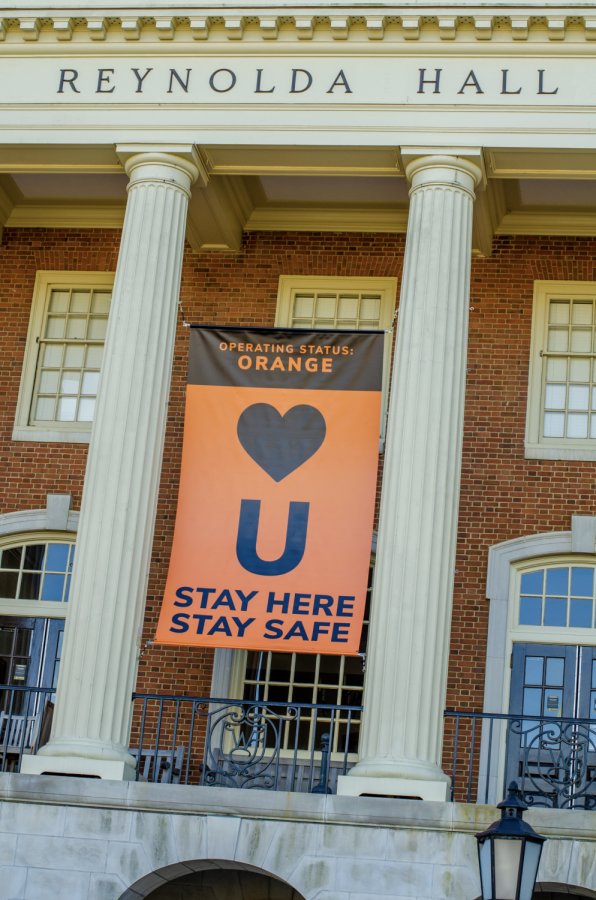One of the Wake Forest admission essay questions for the class of 2021 was inspired by the play.
Current college seniors applying to Wake Forest will have to channel their inner playwright or historian when writing their supplementary essays.
Students applying to the Wake Forest Class of 2021 are asked to select an “unsung” figure to give the “Hamilton treatment.” “Hamilton: An American Musical,” which uses actors of color to portray white founding fathers and rap and hip-hop to explore the life of American Founding Father Alexander Hamilton, has become a cultural phenomenon. The Broadway musical has received a record-setting 16 Tony award nominations, as well as Grammy Awards and a Pulitzer Prize.
The popularity of Hamilton and the subsequent effect on the popularity of the historical figure has had real implications for contemporary issues, including the Department of the Treasury’s decision to place Harriet Tubman on the $20 bill in place of Andrew Jackson, rather than on the $10 bill in place of Hamilton.
Undergraduate applicants must identify someone whose story has been similarly overlooked, and who they believe is worthy of receiving this kind of attention and provide a short essay addressing their choice.
College application essay prompts that generate a variety of creative responses are appearing more frequently as schools move to diversify their student bodies and find ways to more holistically evaluate applicants.
The university has often been at the forefront of this movement, generating media buzz for its questions that leave space for differing interpretations, such as “give us your top 10 list,” or its questions that embrace millennial culture: “describe yourself as fully and accurately as possible in the 140-character limit of a Tweet.”
This Hamilton prompt is one that successfully does both. Barbara Lentz, who is an associate professor of legal analysis, writing and research at the School of Law as well as a first year student faculty fellow, believes that this essay prompt has the potential to be really valuable to the admissions process, and not simply because it’s a question that augments the university’s “cool factor.”
“It seems sort of trendy and flashy but it works,” Lentz said.
The prompt has garnered a lot of initial attention in both the education world and in mainstream media, and it serves as a unique nod to the university’s own interview process which typically asks applicants to identify with a historical figure or select one person, living or dead, whom they would like to meet. Even applicants who opt out of the optional interview supplement will have the opportunity to creatively demonstrate their cultural awareness, historical or economic knowledge or business acumen, as well as many other skills. The prompt allows the responses to be more intimate and potentially more revealing since they are planned and meticulously written.
The pop-culture reference makes the prompt timely and demonstrates a thoughtfulness promoted in campus classrooms.
“I think it’s set up well to generate a really thoughtful essay,” Lentz said.
The book which “Hamilton” was based on was the selection for Lentz’s Project Wake discussion group during first year orientation this year, and she believes that the interest and dedication of the students who participated demonstrates the new prompt’s potential for success.
While other Project Wake books generated little interest, Lentz’s group had over 20 enthusiastic students and a full waitlist.
Lentz’s group of first year students discussed many aspects of the life of Alexander Hamilton in a way that reveals the potential for both broad and deep interests to be expressed in responses to the new prompt. She asked whether the participants would want Hamilton as a roommate and discussed with them his contributions to Federalism, as well as judicial review, building the modern economy and his continued relevance.
“There were so many points of entry to discuss this book,” Lentz said.






















